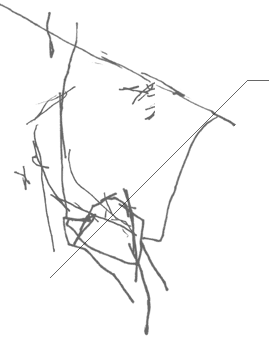Sunday, February 22, 2026 |
||

|

by Michael Goldberg
Monday, November 25, 2002
Out Of Time With Beth Gibbons
Portishead's singer delivers a solo album of extraordinary beauty
|
|||
|
The songs on Beth Gibbons' Out of Season sound like fading
sepia-tone photographs from the past: beautiful yet imperfect images
made from scratched negatives. Her voice forlorn, she brings sadness
into the room. "Autumn leaves/ Pretty as can be," she sings during
one of the album's many downbeat tracks. Her nearly transparent
voice, almost a whisper at times, evokes being alone at 3 a.m. in a
flat somewhere in some forgotten version of London, or perhaps at a
table, way across the room in some bar that may only exist in our
minds. "Autumn leaves/ Pretty as can be/ Everyone can see/ Everyone
except me."
Yet sometimes she can see the beauty. Out of Season, her collaboration with Ex-Talk Talk member Paul Webb (a.k.a. Rustin Man), begins with this triumphant, powerful line from the gently optimistic "Mystery": "God knows how I adore life." That's a jaw-dropping line! A stunner! And she follows it, a bit later in the song, with this: "And the moments that I enjoy/ A place of love and mystery/ I'll be there anytime." For this song she sings to an accompaniment of simple finger-picked nylon-string acoustic guitar, haunting background vocals and a recording of rain. The instrumentation and the arrangement are daring (so far from any hint of what's "in," what's "hip"), but they carry the day because Gibbons' writing and singing are so strong. And because of the strength of vision behind not just this opening song, but the entire album. Gibbons is, of course, the voice of Portishead, the voice heard 'round the world in 1994 when "Sour Times," the moody 007-meets-trip-hop gem off Dummy, became an international hit. On both Dummy and the breathtaking follow-up, Portishead, Geoff Barrow, Adrian Utley and Gibbons used samples and real instruments to create an intoxicating mood music that seemed to simultaneously yearn for the past while reaching into the future. Portishead made music of exceptional beauty, but the picture you saw while listening to their music was very of-the-moment, the moment being the late-'90s modern England. Now Gibbons has stepped right out of that picture, made an album that simply has no relationship to the music of the present, and yet is dead-on in its ability to evoke the mood of the times, our sad yet still somehow hopeful times. Out of Season is both a breakthrough and a revelation for Gibbons. Working with Webb, she's thrown out the samplers and old records. Her new music was played by musicians and captured on tape. Which only makes the otherworldly quality of the recordings even more impressive. "The basic arrangements of the songs on the album could have been played in the 1940s and sounded pretty much the same," Webb is quoted as saying on Gibbons' Web site. "We emphasized this by committing all the music to tape." "I didn't want to imitate where I'd gone before," Gibbons is quoted saying. "So we went with what came out. Obviously we can throw stuff out and go with what you think you're after, but the only thing we were after was something relatively honest." On "Romance," Gibbons sounds a bit like Billie Holiday. On "Resolve" she's a country singer. By turns she is a bit of a blues singer, a Cabaret singer, and an old-time pop singer. Yet though she has a chameleon-like ability to morph her voice in unexpected ways, it's always obvious who is singing the song. Through the album she sounds haunted (that word again!). Sadness and longing and a love that cannot be seep through this record, saturate it and spill over onto you and me — if we listen. The dissonant "Spider Monkey" is one of the album's darker moments, with a melody that could be coming from an old music box, and Gibbons singing, "For unknown/ Is our future/ And our fortune won't let go/ And our faith it will die with the sun/ It will lie underneath all will see." Fall has been giving way to the inevitability of winter here in Sonoma, where I live. The leaves have turned yellow, burnt orange, dark purple-red, then fallen beneath the skeletal tree limbs. The chill air comes in as the sun dips behind the mountains earlier and earlier each day. At barely 5 p.m., the sky fills with billowy grey clouds, each reflecting the flow of a fast-sinking sun, each with pink-red highlights. Add to this scene the sound of "Funny Time of Year," a minor-chord melody, at first just played on acoustic guitar, telling us about "the voice of love so out of season." As the song goes on, a bizarre funhouse orchestra enters the mix, swirling up around Gibbons' voice like something Tom Waits might conjure up, like something too weird even for his Blood Money album. "Winter's here," Gibbons sings, her voice high, fragile, quavering. "And there ain't nothing gonna change/ The winds are blowing telling me all I hear/ Oh it's a funny time of year/ There'll be no blossoms on the trees." Until spring, if we can just hold out for spring. |
||||